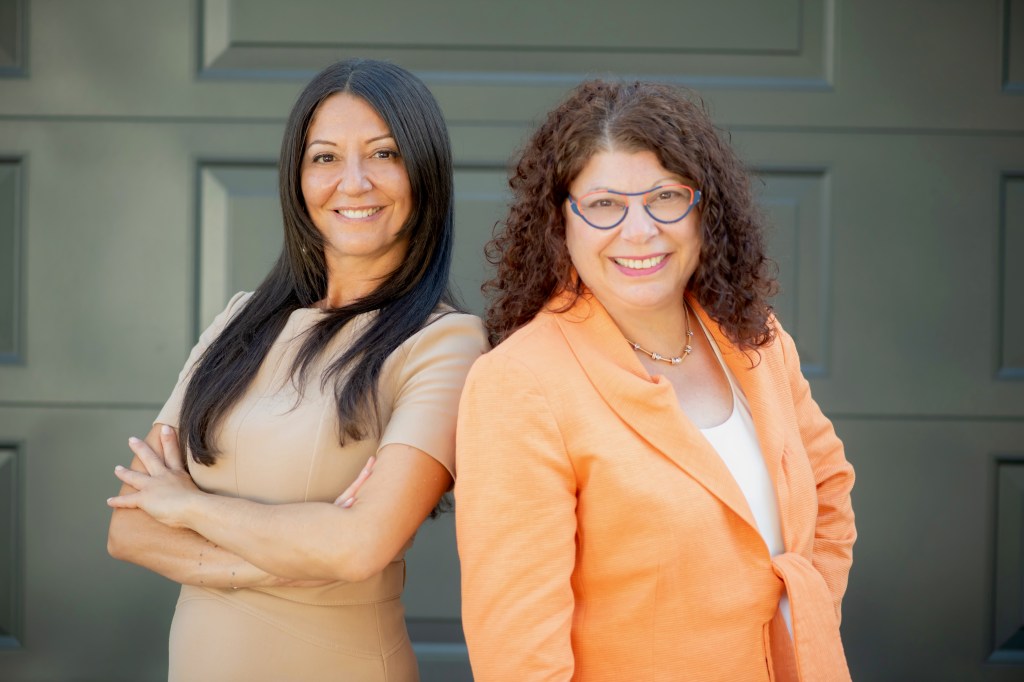Sitting atop the Ritz-Carlton in Melbourne, Bill Fairies co-founders Jenny Ghobrial and Sophia Symeou explain how a moment of financial struggle led to a bootstrapped tech company that turns gift-giving into practical financial support.

It’s an idea born from a scene familiar to many: a pile of festive gifts on one side of a room, and a pile of urgent bills on the other.
For Jenny Ghobrial, a newly single mother living in Pyrmont, the gap between the two felt significant. Staring at Christmas gifts from friends and family on her dining table and the red-letter demands on the other side of her kitchen, she had an idea.
“I looked over at the kitchen counter and saw a bunch of bills waiting to be paid… why can’t I take some of this generosity and put it in that pile of bills over there?,” Ghobrial questioned.
It was a simple idea: a gifting platform that lets people pay a bill for someone they care about. Ghobrial took the concept to her boss, seasoned entrepreneur Sophia Symeou in 2018. Symeou “flipped” for the idea, and the two partnered to build the technology from scratch, becoming the co-founders of Bill Fairies.
Neither had a background in building a tech platform. They say that naivety was their greatest asset.
“It never occurred to us that we couldn’t,” Symeou recalls. “The fact that neither of us had a tech background… it just… never occurred to us that this would be something that was difficult.”
This “just do it” attitude led them to a key realization: they could leverage BPAY’s existing infrastructure, which had already done the work of connecting to thousands of billers.

The business launched with a B2C model, but when the pandemic hit, the founders faced a crisis. A spike in credit card fraud forced them to shut down the public-facing side of the business.
The pivot came in 2021 with a single, unexpected phone call from Wesley Mission, asking if they could use the service to pay a bill for a client in need. That one call turned into working with two charities, then five, and has since grown to 17. Bill Fairies had found its new direction, landing its core market in the charity and non-profit sector.
The founders manually vett BPAY’s list of 36,000 billers, removing all categories that didn’t align with “bonafide bills,” such as gambling sites or self-managed super funds.
“We went through with a fine tooth comb to make sure that there’s nothing on there that we’re not supposed to pay,” says Ghobrial.
This ensures that when a charity gives a voucher, it can only be used for essentials like rent, utilities, or school fees, while still giving the recipient the dignity and “agency” for recipients of Bill Fairies funds to choose which bill to pay.
This philosophy is what Symeou calls “conscious giving with no waste.”
“It is about changing the face of gifting so that… our gifting doesn’t add to landfill and doesn’t add to waste, but does good.”
Sophia Symeou, Bill Fairies co-founder
Unlike physical gift cards, where the national wastage rate can be as high as 30%, Bill Fairies’ is running at just 1%. The platform, which is entirely digital, also allows vouchers to be for an exact amount – down to the cent – rather than a fixed denomination.
The company has been entirely bootstrapped from day one, taking no external funding. It has remained debt-free by operating on a lean model where the founders work from home and the headcount is kept low. The business model is simple: a 3.3% service fee paid by the gift-giver, plus interest earned on the unredeemed voucher funds.

The model is working. The company has processed approximately $12.5 million in bill payments over the last year and is on track to double its revenue this financial year.
While the charity sector remains its anchor, Bill Fairies is expanding. It’s now moving into the corporate rewards space, employee gifting, and even wedding registries. Ghobrial just returned from the UK after meetings with the High Commission to explore international expansion.
For other aspiring entrepreneurs, the founders advice is to embrace not knowing all the answers.
“Your lack of knowledge actually really works in your favor. We probably made just as many strategic decisions about who we don’t listen to as who we do.”
Look back on the week that was with hand-picked articles from Australia and around the world. Sign up to the Forbes Australia newsletter here or become a member here.

